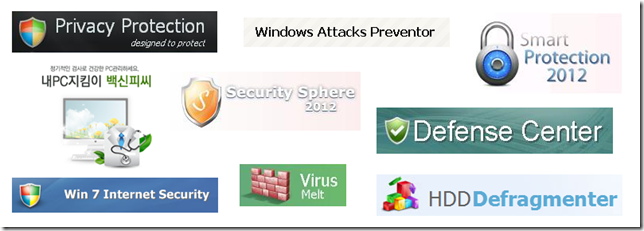The following is a post by Tim Rains, Director of Trustworthy Computing at Microsoft.
Today, Microsoft released new research as part of its Security Intelligence Report, volume 14, which takes a close look at the importance of running up-to-date antivirus software on your computer. The research showed that, on average, computers without antivirus software are 5.5 times more likely to be infected.
Antivirus software from Microsoft, McAfee, Symantec and others helps to guard against viruses, remove infections and protect your privacy. It can help protect your computer from malware trying to steal your credit card information, e-mail address book or even the files you’ve saved to your computer. It is one of the most crucial defenses computer users have to help protect against cybercriminals.
If you have been using computers as long as I have, long before almost every device was constantly connected to the Internet, you’ll recall the days when viruses were typically spread via sneaker-net, through infected floppy disks. You had little to worry about because the number of threats was miniscule and their payloads were typically benign compared to the threats we face today. The digital world has changed quite a bit since that time. In the past decade, Internet usage has gone from 361 million people online to more than 2.4 billion. People spend more time online than ever before and our reliance on computing has turned our tablets, phones and laptops into time capsules filled with confidential information about our lives.
The security of computers has also steadily improved. But cybercriminals have adjusted to this new norm and increasingly use deception tactics to trick users into installing malware on their computers. They bundle malware with illegitimate software activation key generators, spread malware through compromised websites and use social engineering to send malicious documents to potential victims via e-mail and websites. In the fourth quarter of 2012, Microsoft detected and removed malicious documents such as Adobe Acrobat documents (PDFs) and Word documents, commonly sent as attachments through e-mail, from almost 3 million systems.
Despite the effectiveness of antivirus software, the new study showed that a striking number of computers around the world were not protected. In the second half of 2012, two and a half out of 10 computers were not protected by up-to-date antivirus software, worldwide. This is a significant number. It indicates that many people that could be benefiting from the protection that antivirus provides are not benefiting from it. There are three primary reasons that these systems are not protected by up-to-date antivirus software:
· The antivirus was disabled by the bad guys: Many types of malware have the capability to purposely disable a computer’s antivirus software. For instance, if a system is missing security updates or a person has fallen victim to a scam and clicked on a malicious link or attachment, malware may infiltrate the computer and turn off the antivirus software. In cases like this, people are oftentimes presented with fake warnings enticing them to provide credit card information for fake antivirus software, also known as “scareware”. People might be running fake antivirus software without knowing it. It’s easy to be fooled because scareware typically looks like the real thing. In the second half of 2012, Microsoft removed one prevalent scareware package, called Onescan, from almost 3 million systems worldwide. Once fake antivirus software is installed, it can alter the way it looks and behaves in a number of different ways, all with the purpose of tricking you into running it. Some of the false branding used by a number of commonly detected rogue security software programs are shown below. Do you think you can tell the difference between real antivirus software and scareware? Take the “Real vs. Rogue” challenge and test your knowledge.
· No antivirus software installed – Some people may not realize the importance of having antivirus software installed on their systems, so they don’t take the time to install it. In some cases, a person might decide to pause or disable their antimalware program and simply forget to turn it back on.
· Trial period expired or the antivirus software is out of date: Many computers today come pre-loaded with antivirus software. They are often trial versions that require a purchase typically within a specified number of days after activation. Unfortunately, renewal notifications are oftentimes dismissed, or people don’t realize they are using a trial version, and, ultimately, systems go unprotected. In some cases, people might be running antivirus software that is missing updates or is an outdated version.
I strongly encourage you to check your antivirus status. Ask yourself these questions: Do I have antivirus software installed? Is it current? Is it turned on? Did it come with my computer? To find out the answers to these questions, customers should check the status in their security settings. On Windows operating systems, you can do this in the Control Panel.
If you don’t have antivirus software, Microsoft recommends that you download it now – whether it’s antivirus software provided by Microsoft or from another trusted vendor. If you already have Windows 8, then antivirus software is included out of the box for free. No user action is required to set it up. If you are using older versions of Windows, Microsoft provides a free antivirus software called Microsoft Security Essentials, which can be downloaded on our website as well. Many of our partners also offer antivirus software.
Cybercrime is a reality in today’s digital world. Criminals are getting smarter and more mischievous in the ways in which they attempt to scam you and steal personal information. By taking the proper measures to protect your computer, including the most basic step of installing up-to-date antivirus software, people can dramatically reduce the risk of becoming a victim to cybercrime. To learn more about results from the new study, I encourage you to visit www.microsoft.com/sir.



